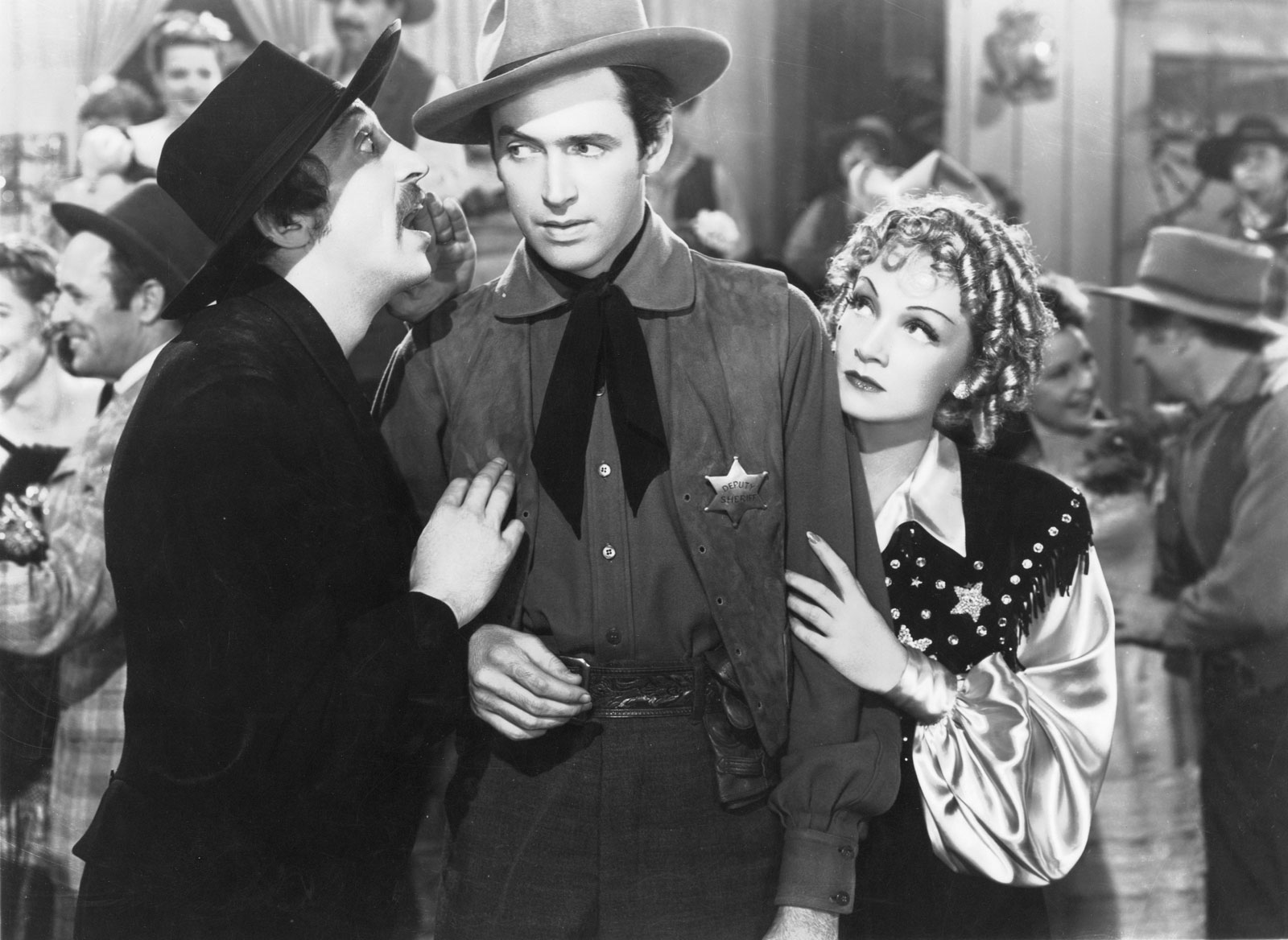The Western genre has seen a myriad of changes in the years since its inception. It’s also unique in cinema, being a genre born barely a half decade after the end of the era it was named after, and itself evolving both with the technology and changing styles as much as the history of the time has been mythologised, revised and eulogised by turns ever since.
One of the key landmark films in that evolutionary history is George Marshall’s seminal tale of the settlement of Bottleneck and the restoration of law to the gang-run town. But rather than following the style of the earlier silent Westerns, or the source novel, Marshall’s radical retake on the style and story would pave the way for the Golden Age of Westerns throughout the 1940s.
Destry Rides Again tells the story of the town of Bottleneck, a small ranch town held in the grip of gang-boss, Kent (Brian Donlevy). When he’s not cheating at card games with the help of his Dance Hall singer girlfriend, Frenchy (Marlene Dietrich), he’s shooting the competition. Having murdered the local sheriff, Kent instates the town drunk, Wash (Charles Winninger) in his place, but the joke falls flat. Sheriff Wash was once the deputy to the legendary Sheriff Tom Destry, and sends immediately for his son. When he arrives, the expected lawman turns out to be mild-mannered young deputy sheriff, Tom Destry Jnr (James Stewart) – but Destry is no pushover and uses his wits, not his guns, to win over the town.
What sets Destry Rides Again apart from its peers is its willingness to twist so many facets of the old silent cowboy movie style. The film also takes great pains to subvert both the expected characters and the gender roles of the story. It’s surprising that for a film made before 1940, there is considerable time given to the wives of characters in the story, and the centrepiece of the movie isn’t a shootout, but rather a lengthy and brutal cat fight, shot without stunt doubles, between Frenchy and Lily Belle (Una Merkel).
Furthermore, Stewart’s performance seems initially contrary, as he acts the goofy “dude” rather than the macho gunslinger. In true Stewart style, he still excels as the affable deputy with a soft golden tongue but an iron will underneath. But the best aspect by far is the film being almost entirely propelled by the magnetic performance of Dietrich, whether singing, dancing or throwing furniture across the screen. This is perhaps most notable of all during her musical numbers, as she belts out the songs Little Joe, The Boys in the Back Room, and You’ve Got That Look. It was a career defining film for both actors, and their genuine affection and chemistry shows onscreen.
In fact it’s easy to see how of an much impact the film had, as many of its plotlines and trappings served as a basic outline for Mel Brooks‘ infamous cowboy spoof Blazing Saddles, not to mention the inspiration for that film’s heavily German-accented Dance Hall singer, Lili Von Schtupp. Ultimately, while many of the films that followed in its wake may not have lived up to its inventive charms and clever subversion, Destry Rides Again is a smart and revolutionary Western that deserves its place in the annals of the genre.
The restoration of the film is flawless, with the Criterion Blu Ray looking as crisp and clear as one could ever hope from an 80-year-old film, along with enough relevant side materials to keep an enthusiast happy. Most notably, the inclusion of a radio play version of the story performed by Stewart himself is a particular delight.
Available on Blu Ray from Mon 18 May 2020


Comments